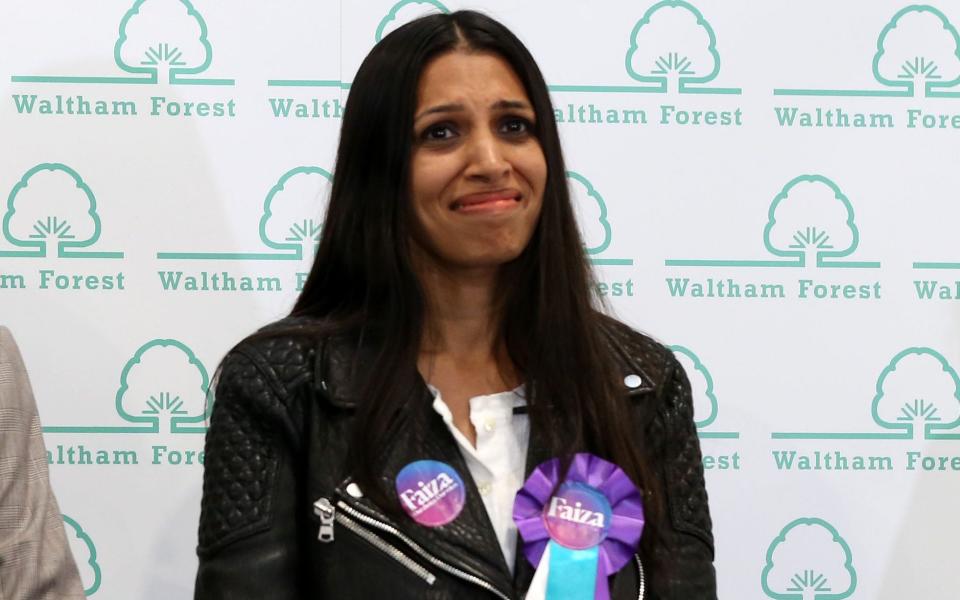As one big Tory beast after another faces The hunger Games On election night, one remarkably escaped the bloodbath. Sir Iain Duncan Smith, the former leader of the Conservative Party, stood proudly on the stage with the past and present Labour candidates whose fierce infighting had done him such a great favour.
He seemed pleasantly surprised when the Electoral Commission for Chingford and Woodford Green announced his total of 17,281 votes, which was understandable given that the exit poll had predicted he had less than a 1 per cent chance of winning. And yet there he was, the great survivor who had more than doubled his majority and a beneficiary of one of the biggest blunders in modern campaign history. It seemed that IDS had been saved by a miracle. “I live for the fight,” he says. “Campaigning is a test.”
In 2019, it was easy to assume that Duncan Smith was on borrowed time. The mood of Tory jubilation that accompanied Boris Johnson’s 80-seat majority was somewhat muted on the north-east London and Essex borders. The now 70-year-old Duncan Smith, who took over the constituency from Norman Tebbit in 1992, had clung on with 1,762 votes, behind Labour’s Faiza Shaheen, and as the 2024 election approached, those prepared to entertain the prospects of a Tory takeover were as few and far between as happy Scottish nationalists. Such an outcome was made even less likely by a boundary change that had added parts of Labour-leaning Ilford South and Upper Walthamstow to the constituency.
Even Duncan Smith admits: “My seat should have been written off long before this election. The fact that we kept it was based on the fact that people, even if they were angry with the government, would still vote for me.”
Unbeknownst to anyone outside the byzantine world of the local Labour constituency, all was not well. In scenes reminiscent of many internal power struggles since Sir Keir Starmer became Labour leader, the Corbynite faction tried to hold on to its influence as diktats and new priorities were handed down from the new regime at Labour HQ.
Shaheen, 42, was an outspoken supporter of Corbyn and a follower of former shadow chancellor John McDonnell: she backed Rebecca Long-Bailey in the leadership race and controversially opposed allegations that Jeremy Corbyn had laid a wreath on the graves of members of the terrorist organisation responsible for the mass murder of Israeli athletes at the 1972 Munich Olympics.
In another obscure incident, described by her opponents as “casual racism”, she joked about former Home Secretary Sajid Javid, speculating that he “definitely orders lemon and herb chicken from Nandos”, reportedly ridiculing his authenticity as a man of Pakistani descent.
The bad feeling actually dates back to the 2019 selection process, when Corbyn was still Labour leader. Moderates in the constituency felt Shaheen had been foisted on them. In 2022, Shaheen, an economist, was re-selected on the basis that she had been hot on the heels of Duncan Smith in 2019.

This is despite the fact that she spent a lot of time at New York University. And she was still Labour’s potential parliamentary candidate on 22 May this year, when Rishi Sunak called the election.
But over the next seven days, as the Labour high command vetted the candidates, Shaheen was summoned to appear before a National Executive panel at the last minute to explain a series of social media posts that downplayed allegations of antisemitism, which she found amusing.
On May 29, she was informed that she had been withdrawn, a decision that Shaheen said left her in a “state of shock” and drew widespread sympathy on social media.
Owen Jones tweeted: “Labour is an institutionally racist political party.” Fifty local activists left with her and helped coordinate her campaign as a new independent candidate. Under the impression that Shaheen had only been dumped because he was one of his Daily show sketches, American satirist Jon Stewart said of Labour’s actions: “This is the stupidest thing the UK has done since Boris Johnson was elected.” For a few days, Chingford was the most famous British parliamentary constituency in the world.
A local Labour activist told me: “She always pretended to be an independent. It was always about her rather than the party. So after she was deselected it was just an exaggerated version of what she’s always been.”
When Shaheen heard the news that she had been replaced by Shama Tatler, 41, she posted: “Really? Wow, a Brent councillor with no history here? They would rather lose than have a left wing pro-Palestine candidate. This is insulting to the community.”
On May 31, Shaheen wrote a column in The guard claiming that hundreds of people would not vote Labour because of the way she had been treated. She was proven right.
On the same day, Chingford Labour’s office was vandalized and covered with anti-Israel graffiti, including: “Israel [sic] lobby out” and “British MPs for the UK, not Israel.”


Tatler condemned it as an attack on the entire community, with some of Shaheen’s supporters claiming it was a smear campaign against local residents. The fact that Tatler, a Hindu, was a member of the Jewish Labour Movement was not universally welcomed. On 5 June, Shaheen was supported by the group “We Deserve Better”, a coalition of far-left activists who put Gaza at the heart of their politics.
Shaheen’s campaign was aggressive and dynamic, with her own YouTube channel and effective social media. Seven-time world snooker champion Ronnie O’Sullivan, a local, gave her his unwavering support. In her heartland, the Highams Park ward, Shaheen’s supporters were highly visible, handing out glossy leaflets at train stations and schools, and sticking stickers on children’s blazers before they walked into the playground. Her team made much of their own campaigning, which always put her ahead of Duncan Smith and Labour.
A Labour volunteer who campaigned every day in the week leading up to election night told me: “We never put anything out there directly challenging Shaheen. She had said from day one that she had been wronged by the Labour Party and that we were such bad people, but we had done nothing to challenge or deny that. I’m glad they deselected her, but we needed a better, clearer explanation of why that had been done.”
Rather than addressing the real threat to Labour, the local party’s message and literature were generic, attacking Rishi Sunak and ridiculing his decision to leave the D-Day celebrations early. By withdrawing their own candidate at the start of the campaign – six weeks before the election – Labour had a mountain to climb. With a replacement who could easily be portrayed as an “outsider”, Shaheen effectively portrayed himself as the victim of a conspiracy.
While Shaheen was known by everyone, Tatler struggled with recognition. “Once the Labour split happened, we couldn’t figure out what happened to it,” says Duncan Smith. “But I was able to keep the protest vote from Reform to a minimum, because people knew my record. And I said to my team: ‘Don’t get involved in anything Labour.'”
The volunteer said: “So many people at the front door said to me, ‘It wasn’t nice what you did to that woman, was it?’ She was very good at taking advantage of that.”


Meanwhile, Duncan Smith’s team went about their business as usual. Shaheen played the ultra-local card for all it was worth, but two can play that game. The former Tory leader is known as a conscientious constituency MP and had three decades of local networking to fall back on. That was crucial in keeping his votes above those of his two warring rivals.
“We never stopped working the constituency after the last election,” says Duncan Smith. “That was crucial. We were very local – it was about me and what I had done. I have almost 90 per cent recognition in the area.”
“We didn’t work hard enough to expose Shaheen’s politics,” says the Labour volunteer. “We weren’t aggressive or passionate enough.”
With the candidates lined up on stage in the early hours of 5 July, Shaheen continued to stare at Tatler, which visibly shrunk as the results became clear. When the results were read out, Shaheen shook her head and growled at Tatler. But it was Duncan Smith who triumphed. Tatler had 12,523 votes; Shaheen 12,445. Both sides blamed each other.
“There was quite a bit of intense stuff going on between their campaigns,” says Duncan Smith. “At one hustings I had to sit between them to keep them apart.”
Not only had IDS won, but it had also increased its majority to 4,758, albeit with a smaller share of the vote. Until Shaheen’s deselection, Chingford and Woodford Green was the tenth most likely seat to change in Labour’s target rankings.
A Labour activist told the Politico website: “He’s like the Terminator. He can’t be defeated.”
On the night of a Labour victory, they had somehow screwed up in Chingford. It was a terrible election for the Conservatives, but here was a small miracle to witness. Norman Tebbit was no doubt snickering somewhere.

